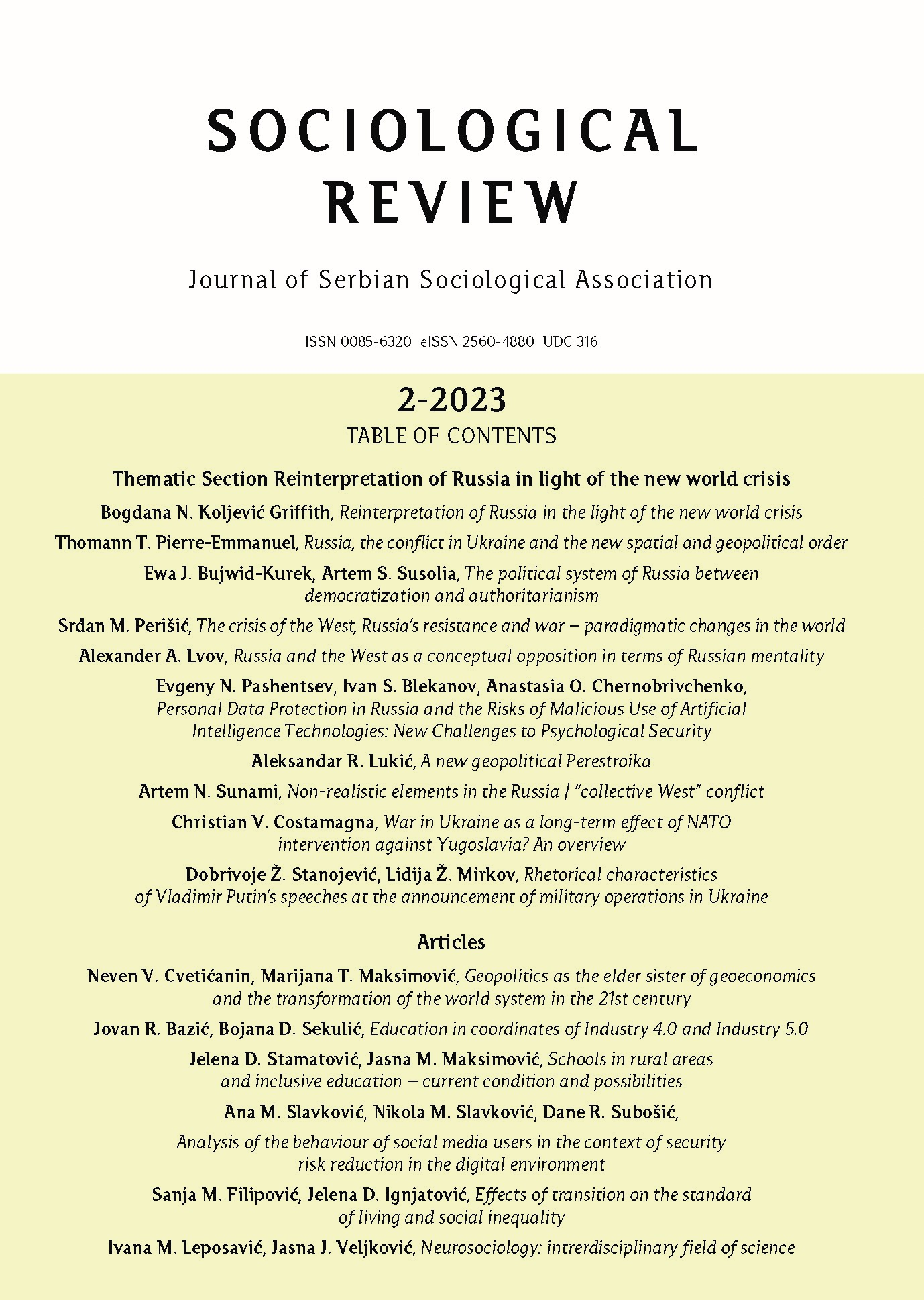Effects of transition on the standard of living and social inequality
Effects of transition on the standard of living and social inequality
Author(s): Sanja M. Filipović, Jelena D. IgnjatovićSubject(s): Social Sciences, Sociology, Social differentiation, Family and social welfare, Sociology of the arts, business, education, Economic development
Published by: Српско социолошко друштво
Keywords: transition; standard of living; social inequality; macroeconomic stability
Summary/Abstract: The aim of this paper is to determine the effects of the transition on the standard of living and social inequality in Poland, Hungary, Slovenia and Russia. In order to establish a market economy, these countries started economic and systemic reforms at the end of the 1980s. The goal of the transition was the establishment of a market economy and macroeconomic stability, and to ensure a higher standard of living because (with the exception of Slovenia) the GDP per capita in these countries was significantly lower than the average of the EU countries. Although they applied different approaches in the implementation of the transition, it is characteristic for all countries that in the first phase of the transition (until the mid-1990s), they had the problem of recession and hyperinflation, which, together with the inadequate privatization process, was reflected in the decline of the standard of living (in Slovenia and Russia) and the growth of inequality. Only after establishing institutional reforms and attracting FDI, in the second transition phase (until the end of the 1990s), macroeconomic stability was established, which contributed to the growth of living standards (except for Russia) and the reduction of inequality (except in Poland).
Journal: Социолошки преглед
- Issue Year: 57/2023
- Issue No: 2
- Page Range: 692-717
- Page Count: 26
- Language: English, Serbian

